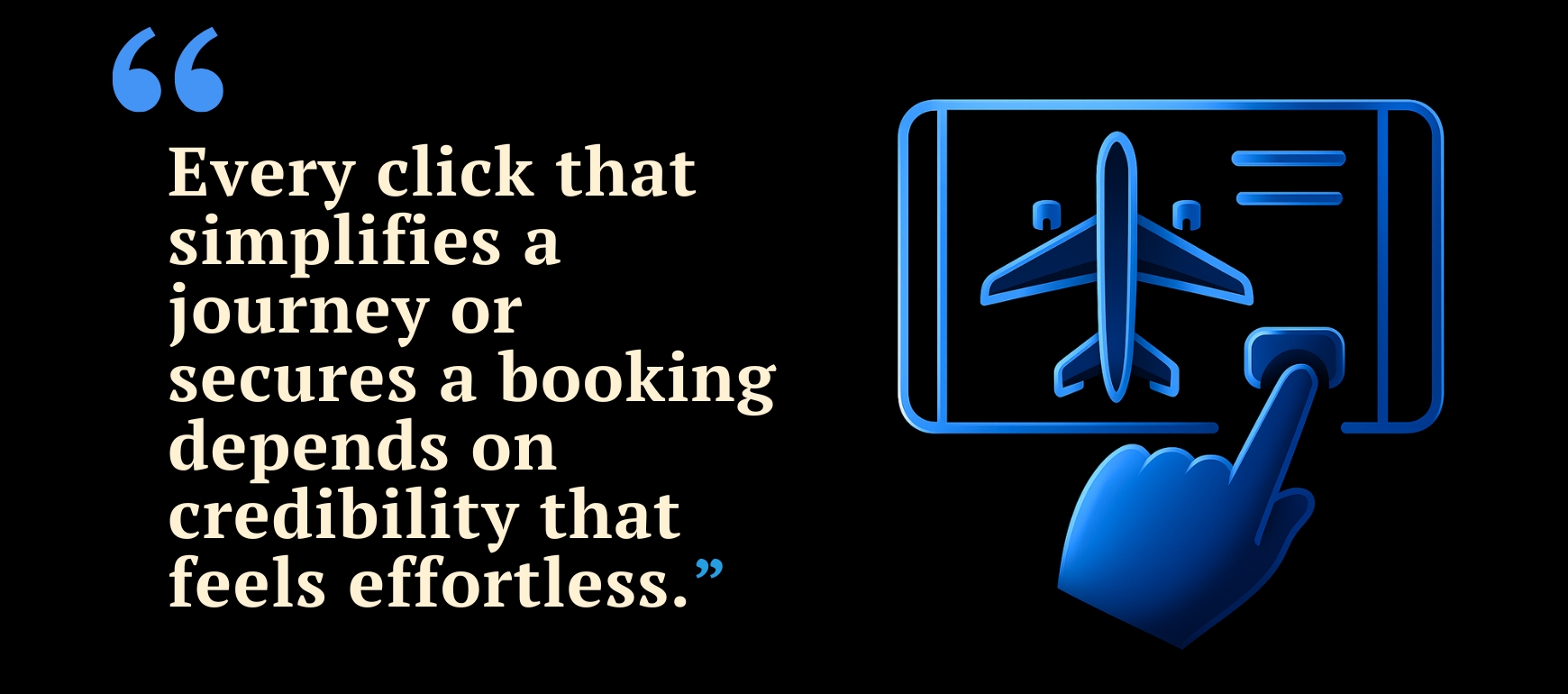TravelTech builds the infrastructure of access. Every click that simplifies a journey or secures a booking depends on credibility that feels effortless. The domain name functions as that silent infrastructure, reducing hesitation, signaling safety, and shaping the traveler’s first impression long before the itinerary begins.
Analysis of 300+ TravelTech companies shows how naming and domain name choices shape visibility, trust, and growth. The table below highlights the most common approaches and why they matter.
What the Data Reveals
| Pattern | Metric | Why It Matters |
|---|---|---|
| .com prevalence | 290 of 310 companies use .com domain names | The extension signals trust, liquidity, and global familiarity across user segments. |
| Exact Brand Match (EBM) | 275 of 310 operate on their exact brand match domain name | EBM domain names create a seamless connection between brand recall and digital presence, reinforcing trust at every interaction. |
| Hyphens | Only one company includes a hyphen | Visual interruption weakens recall and erodes conversion integrity. |
| Naming clarity | Combination of short, abstract, and descriptive words | Concise language aids discovery, while descriptive cues support context. |
| Brandable and dictionary words | Widespread adoption of familiar or coined names such as Kayak, Turo, Trivago | Pronounceable, transferable identities create longevity across regions and product lines. |
Source: SmartBranding.com
Key Lessons for TravelTech Founders & Investors
Accessibility Begins with Recognition
Users rarely type full URLs anymore, but they recognize trustworthy names instantly. EBM domain names establish familiarity that lowers hesitation at the moment of transaction.
Descriptive Names Support Discovery, Flexible Names Support Growth
Domain names including travel-related terms such as trip, hotel, or tour align neatly with early search behavior. Over time, however, descriptors can limit perception as companies diversify into software, analytics, or enterprise travel management. The most enduring TravelTech brands preserve flexibility through broader or invented names that grow with the business.
Brevity Strengthens Conversion
Short, intuitive names perform better because users remember and repeat them easily. In a market defined by mobile usage and rapid decision cycles, each additional word increases the chance of drop-off. Direct navigation, a high-margin traffic source, expands naturally when the name is concise and easy to recall.
Creativity in Naming
Invented or adapted names such as Expedia, Trivago, or Jurny show how distinct language choices evolve into strategic advantage. Creativity in naming helps build a distinctive identity and makes securing an aligned domain more practical during early-stage brand development.
Clear Structure Reduces Cost
Complex naming formats (using hyphens or added modifiers), often demand higher marketing spend to correct user confusion. Streamlined domain names improve discoverability and keep engagement consistent, delivering measurable gains in conversion, retention, and overall efficiency.
Takeaway
TravelTech companies compete on clarity, speed, and trust long before a booking takes place. The data confirms that domain strategy sits at the center of that equation: names that are simple, memorable, and well-aligned with brand intent convert confidence into growth. For founders, the right domain name represents a structural asset that strengthens access, credibility, and scalability across every stage of expansion.
👉 Build traveler trust from the first click. Post your request on DomainsForEquity.com and find a domain name that moves your brand as easily as your customers.


 by Tatiana
by Tatiana